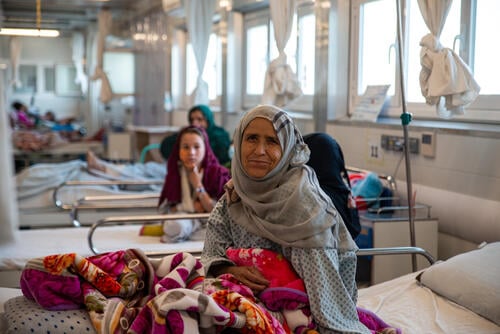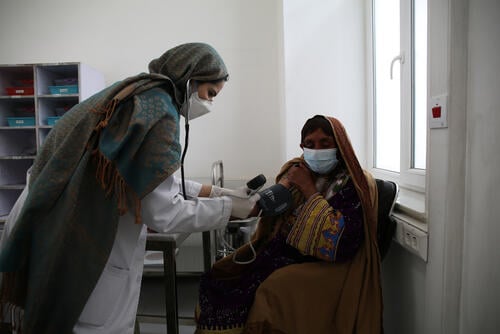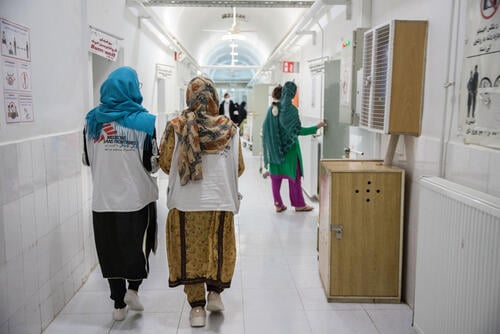Since August 2021, the economic crisis in Afghanistan brought about by international sanctions, combined with development funding cuts and asset freezes overseas have fuelled massive unemployment and loss of income among Afghans. Hopes that the end of the war would significantly reduce obstacles to accessing healthcare were dashed as they were replaced by new barriers and fears.
Decades of armed conflict, as well as natural disasters, a pandemic, and harmful social policies particularly targeting women have also contributed to making Afghanistan one of the most complex humanitarian emergencies in the world.
A new report from Médecins Sans Frontières (MSF), Persistent barriers to accessing healthcare in Afghanistan: The ripple effects of a protracted crisis and a staggering economic situation, is a follow-up to similar publications released in 2014, 2020 and 2021. It highlights some of the main challenges people in Afghanistan face when trying to access healthcare, mainly with regards to their economic concerns as well as new and pre-existing restrictions placed on women.





